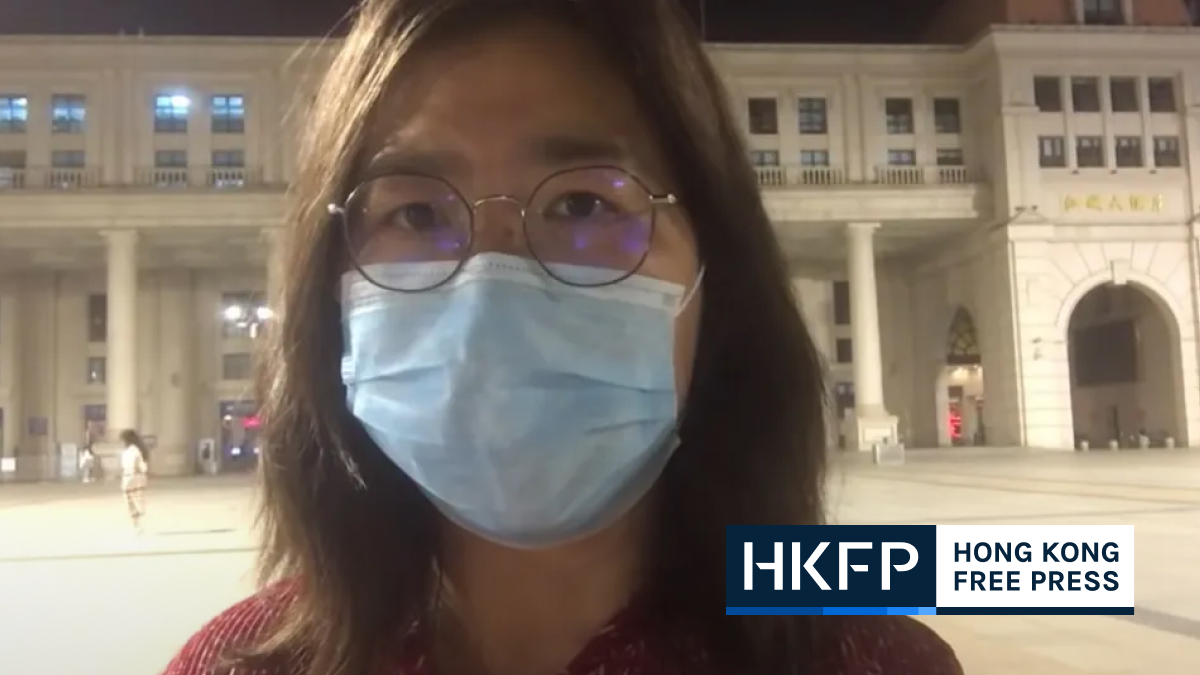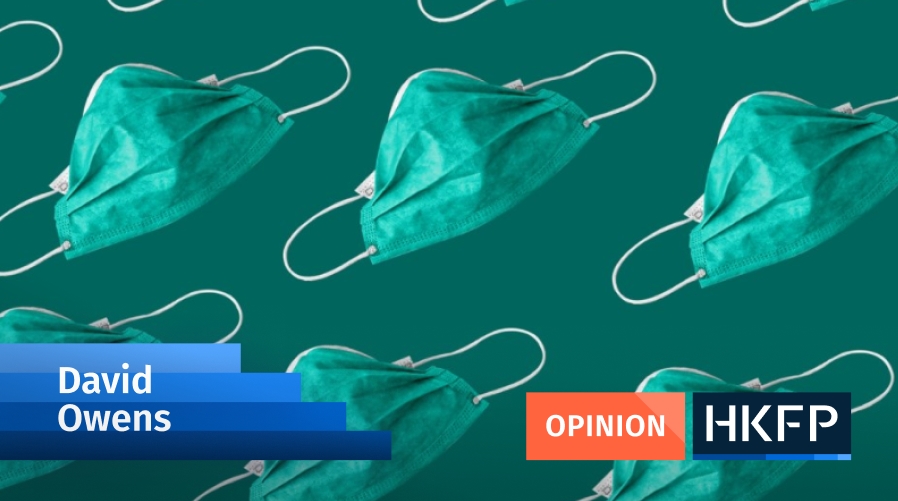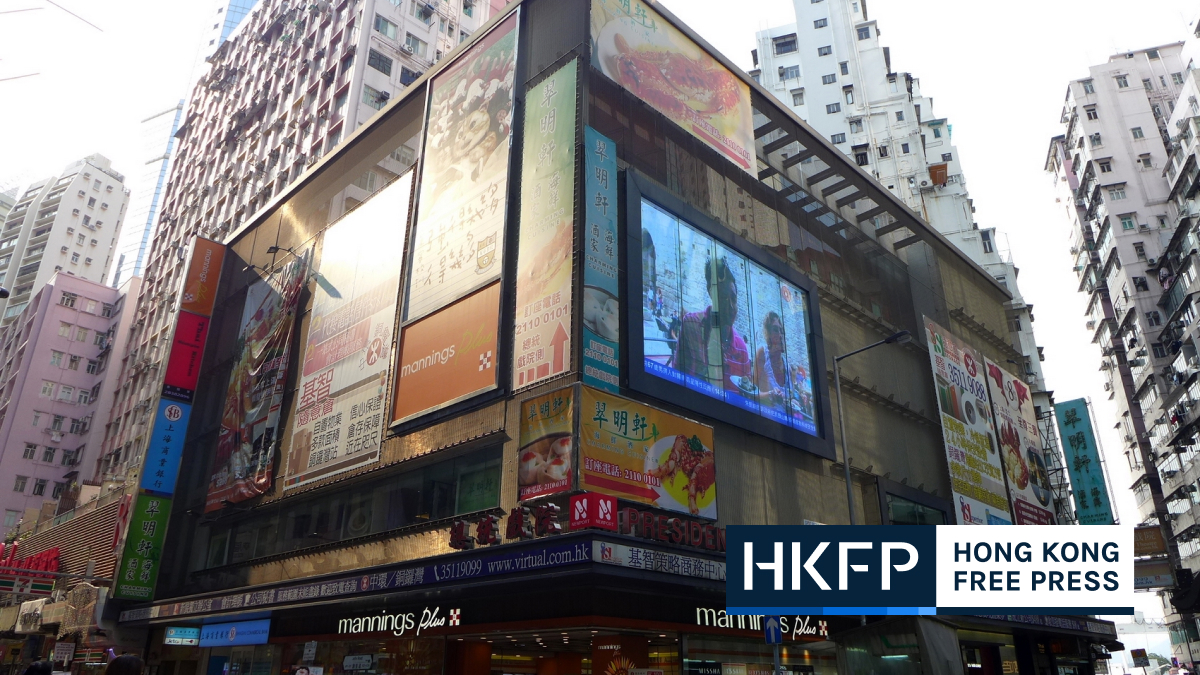Hong Kong is recruiting 1,000 carers from mainland China on temporary contracts to look after elderly citizens in quarantine facilities or holding centres. An official said on Tuesday that the carers would be paid more than HK$30,000 monthly and that no specific qualifications were required of them, beyond being able to speak Cantonese.
Meanwhile, epidemiologist Liang Wannian, a key advocate of mainland China’s “dynamic zero-Covid” policy, has arrived in the city and will lead an expert team to give relevant policy suggestions to the Hong Kong government.

Secretary for Labour and Welfare Law Chi-kwong announced on his blog on Sunday that the Social Welfare Department (SWD) would hire 1,000 carers from mainland China to work in Hong Kong for three months under provisional contracts.
To do so, regulations relating to the employment of imported labour in the city’s care homes would be loosened. The need for a four-week local recruitment drive and consultation with the Labour Advisory Board will be dropped.
As Hong Kong’s medical and isolation facilities have been overwhelmed by the fifth wave of Covid-19, many elderly patients have had to quarantine in their nursing home, potentially expediting transmission of the virus among those most vulnerable to it.
Kenneth Chan, the chair of the Elderly Services Association of Hong Kong, told Initium Media that many private nursing homes lacked space, manpower, professional knowledge and the appropriate interior or ventilation design to handle the outbreak of infectious diseases.

Chan also told HK01 that residents and staff at some smaller care homes had already contracted Covid-19, while overall around 10 per cent of Hong Kong’s nursing home employees were infected.
Speaking on Commercial Radio on Tuesday morning, Law said the situation in nursing homes is “dire.” Covid-19 infections have been found in half of Hong Kong’s around 1,000 nursing homes, “and the largest problem is the lack of manpower,” Law said.
Law said the hiring of mainland Chinese caregivers had started and he hoped that the first batch could arrive within two to three days. Apart from having to be able to speak Cantonese, Law said there was “no specific requirements” for the applicants.
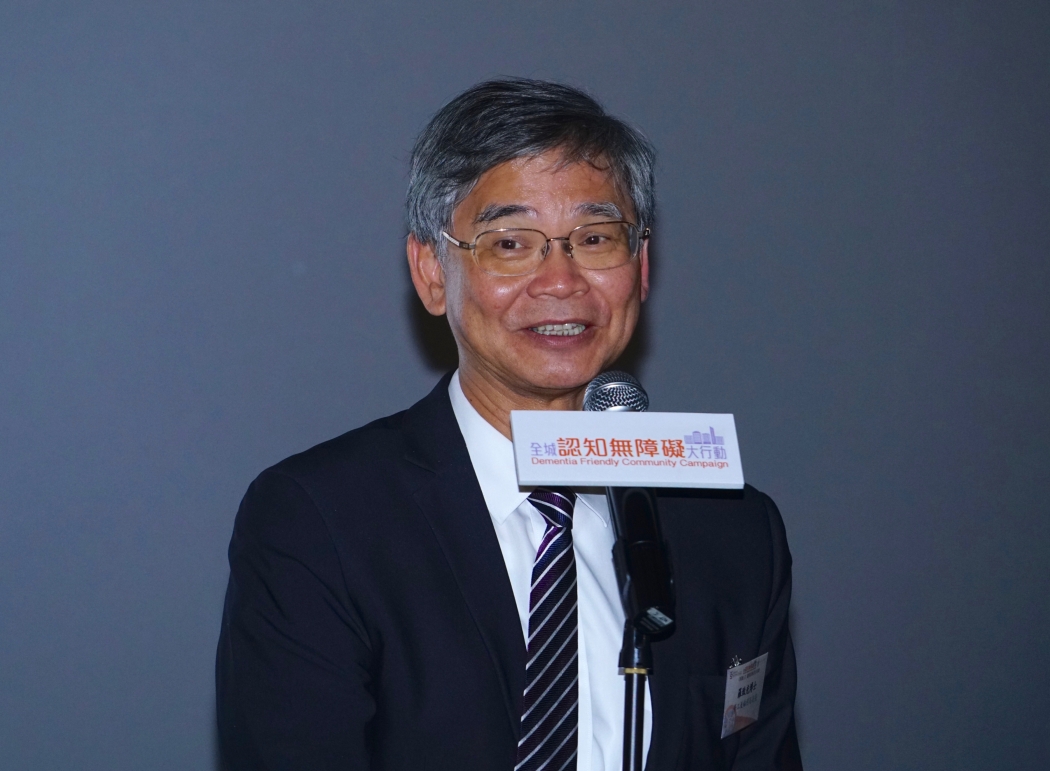
According to Law, they will receive three days of training before they are put to work in quarantine facilities or holding centres taking care of infected seniors, “because a large proportion are possibly people that have no experience.”
In those three days, they will be taught elements of basic caring, such as how to feed people who are bed-ridden and anti-epidemic measures, Law said.
Law also said he did not expect the 1,000 imported caretakers to “come immediately” as they would need to be divided into groups to receive training.
He said the basic wage for these positions would be typical of imported caregivers, at around HK$14,000 per month. However, they will receive an extra allowance of HK$2000 monthly, together with a daily additional amount of $500 for taking care of Covid-19 patients – bringing the total to about HK$31,000 monthly.

The monthly and daily extra subsidies were also available to local staff at nursing houses, whose salaries start at about HK$15,000 with the SWD, although many private care homes offer less.
Core advocate of ‘dynamic zero Covid’ arrives
On Monday evening, Liang Wannian, the leader of the National Health Commission’s Covid Response Expert Team, was among five mainland experts to arrive in Hong Kong as the city reported 34,466 new Covid-19 infections and 87 deaths.
Liang is the highest ranking mainland health official sent to help with the city’s fight against Covid-19. He said the team would assist the Hong Kong government with anti-epidemic work, while cooperating and exchanging ideas with local experts to “ensure the implementation of effective preventive and control measures.”
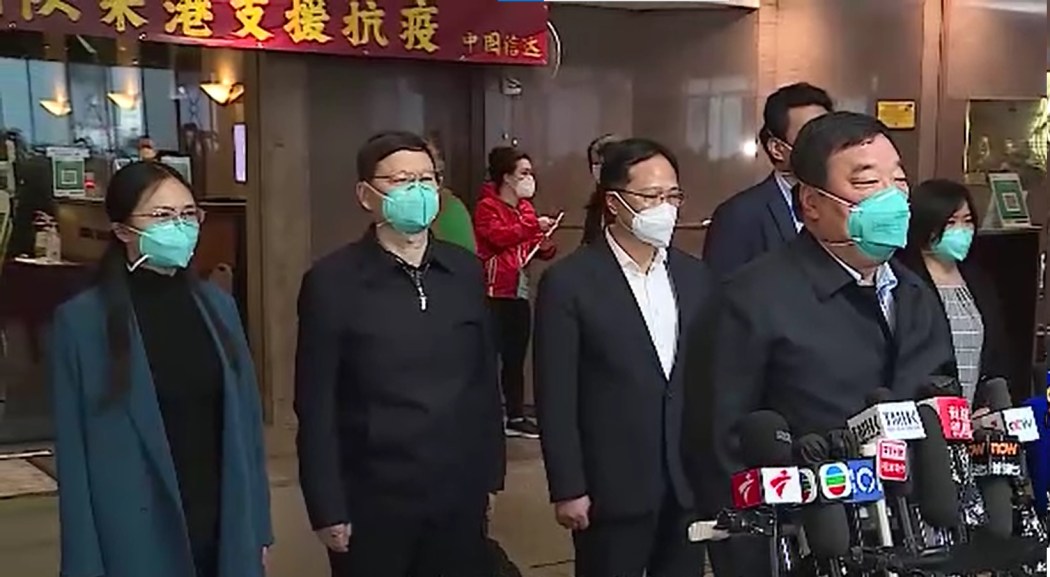
Speaking to reporters outside of his hotel, Liang said that Hong Kong’s fifth wave Covid-19 “has tugged on the heartstrings of the entire nation.” He added that the central authorities “attach high importance [to the city’s epidemic situation] and request the whole country to exhaust their efforts to support the Hong Kong government’s work in fighting Covid-19.”
The 60-year-old helped China to contain the Covid-19 outbreak in Wuhan in 2020, and the SARS infections in Beijing in 2003. He has also been a strong advocate for the country’s “dynamic zero-Covid” policy, telling state-owned Phoenix TV on February 7 that the principle is the “best choice” as it was “effective” and “suits China’s practical situations.”
In the same interview, he also said the “dynamic zero-Covid” strategy would be applicable to Hong Kong, but it was based on his observation in early February when “local cases are relatively lower and most cases are imported or related to imported infections.”
The team of five were the third batch of mainland experts to arrive in Hong Kong since the fifth wave began.
Shared bathrooms at new quarantine facility
A new quarantine facility in Tsing Yi will start receiving Covid-19 patients on Tuesday afternoon, Chief Secretary for Administration John Lee told the press after inspecting the isolation centre in the morning. The facility was primarily made up of containers and each room contained three beds, without any barriers between them.
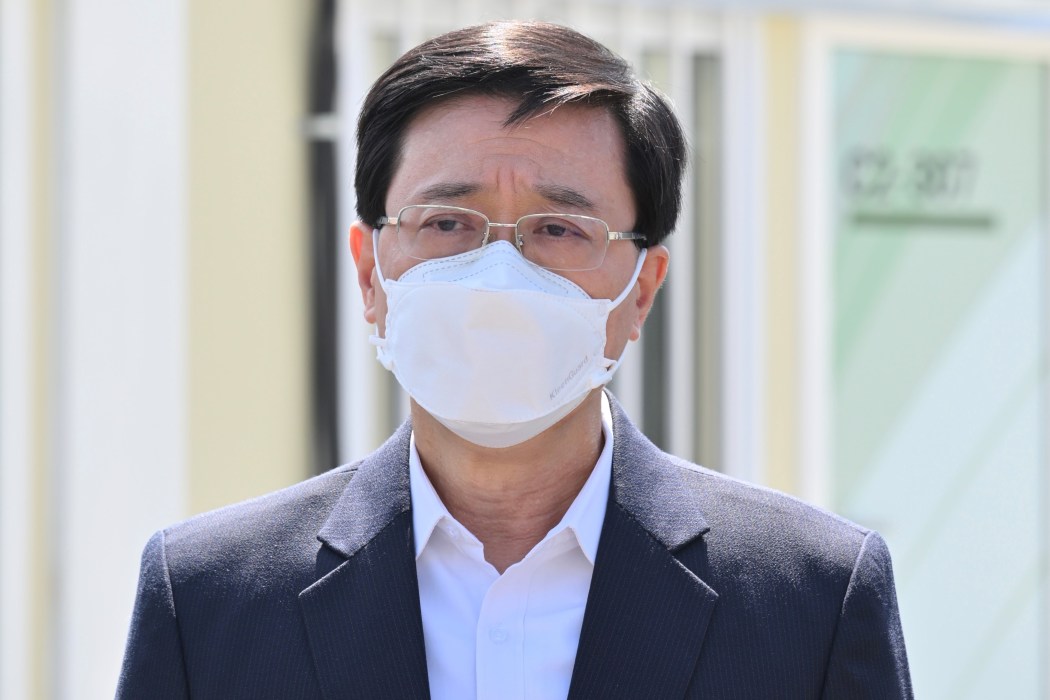
Lee said some facilities in the quarantine centre were shared, including toilets and bathrooms. “This approach is in line with, for example, our measures in the AsiaWorld-Expo. Even inside public hospitals, there are also sometimes shared facilities,” Lee said.
According to Lee, the newly constructed isolation centre comprises 3,900 beds to quarantine Covid-19 patients with mild or no symptoms to sever transmission links in the community.
The facility at Tsing Yi was the first to be completed among the eight community treatment or isolation facilities being built with mainland support.
Correction: 20.50: An earlier version of this article incorrectly stated that the new quarantine facility in Tsing Yi would start receiving Covid-19 patients on Monday afternoon. In fact, it started receiving admissions on Tuesday.
Support HKFP | Policies & Ethics | Error/typo? | Contact Us | Newsletter | Transparency & Annual Report | Apps
Help safeguard press freedom & keep HKFP free for all readers by supporting our team


